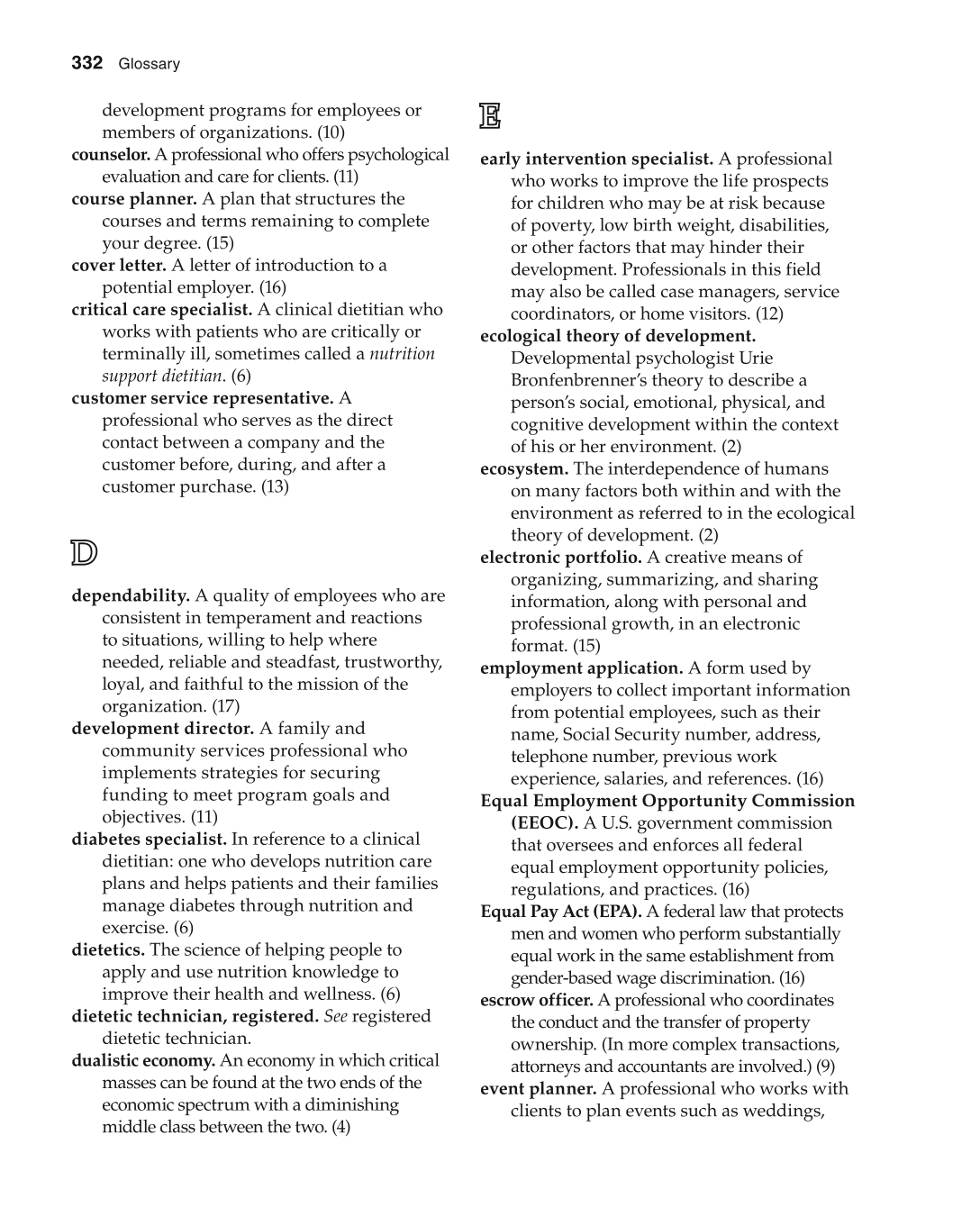332
Glossary
development programs for employees or
members of organizations. (10)
counselor. A professional who offers psychological
evaluation and care for clients. (11)
course planner. A plan that structures the
courses and terms remaining to complete
your degree. (15)
cover letter. A letter of introduction to a
potential employer. (16)
critical care specialist. A clinical dietitian who
works with patients who are critically or
terminally ill, sometimes called a nutrition
support dietitian. (6)
customer service representative. A
professional who serves as the direct
contact between a company and the
customer before, during, and after a
customer purchase. (13)
D D
dependability. A quality of employees who are
consistent in temperament and reactions
to situations, willing to help where
needed, reliable and steadfast, trustworthy,
loyal, and faithful to the mission of the
organization. (17)
development director. A family and
community services professional who
implements strategies for securing
funding to meet program goals and
objectives. (11)
diabetes specialist. In reference to a clinical
dietitian: one who develops nutrition care
plans and helps patients and their families
manage diabetes through nutrition and
exercise. (6)
dietetics. The science of helping people to
apply and use nutrition knowledge to
improve their health and wellness. (6)
dietetic technician, registered. See registered
dietetic technician.
dualistic economy. An economy in which critical
masses can be found at the two ends of the
economic spectrum with a diminishing
middle class between the two. (4)
E E
early intervention specialist. A professional
who works to improve the life prospects
for children who may be at risk because
of poverty, low birth weight, disabilities,
or other factors that may hinder their
development. Professionals in this field
may also be called case managers, service
coordinators, or home visitors. (12)
ecological theory of development.
Developmental psychologist Urie
Bronfenbrenner’s theory to describe a
person’s social, emotional, physical, and
cognitive development within the context
of his or her environment. (2)
ecosystem. The interdependence of humans
on many factors both within and with the
environment as referred to in the ecological
theory of development. (2)
electronic portfolio. A creative means of
organizing, summarizing, and sharing
information, along with personal and
professional growth, in an electronic
format. (15)
employment application. A form used by
employers to collect important information
from potential employees, such as their
name, Social Security number, address,
telephone number, previous work
experience, salaries, and references. (16)
Equal Employment Opportunity Commission
(EEOC). A U.S. government commission
that oversees and enforces all federal
equal employment opportunity policies,
regulations, and practices. (16)
Equal Pay Act (EPA). A federal law that protects
men and women who perform substantially
equal work in the same establishment from
gender-based wage discrimination. (16)
escrow officer. A professional who coordinates
the conduct and the transfer of property
ownership. (In more complex transactions,
attorneys and accountants are involved.) (9)
event planner. A professional who works with
clients to plan events such as weddings,
